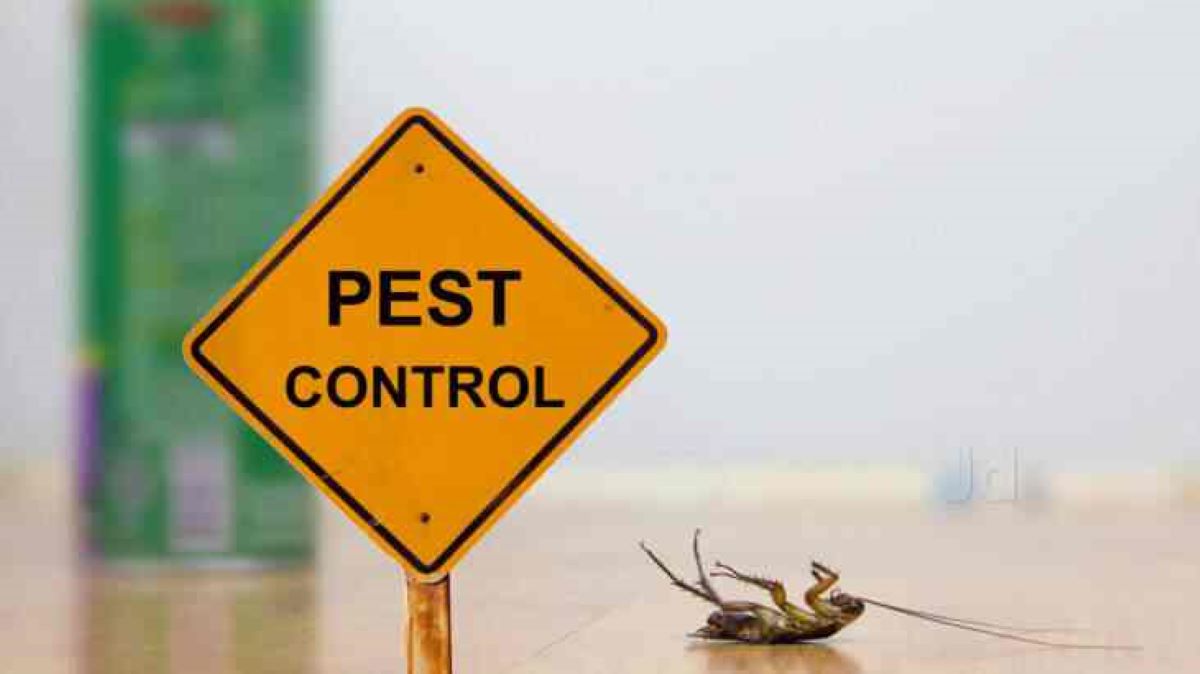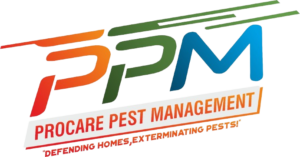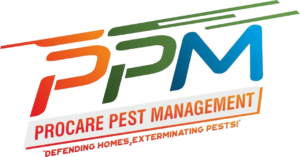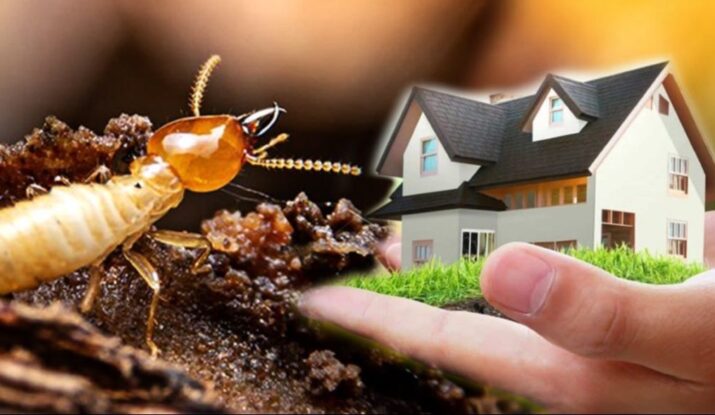How to Make Your Home Pest-Free : A clean, well-maintained home not only offers a pleasant living environment but also minimizes the risk of pest infestations. Pests like rodents, cockroaches, spiders, and ants can easily find their way into homes, leading to health concerns and structural damage. Instead of addressing pest problems after they’ve already established themselves, it’s wiser to take preventive measures. By incorporating simple yet effective strategies, you can protect your home from unwanted pests. Here’s a comprehensive guide to keeping your home pest-free.
How to Make Your Home Pest-Free

1. Regular Deep Cleaning
A clean home is a pest-free home. Pests thrive in dark, damp, and unkempt spaces, so maintaining cleanliness in all corners of your home is the first step to prevention. Regular vacuuming, dusting, and decluttering can significantly reduce the risk of pest infestations. Focus on cleaning under furniture, inside cupboards, and other hard-to-reach areas, such as the loft, under the bed, and behind the refrigerator, where pests often hide and breed.
Tips for Deep Cleaning:
- Vacuum and mop floors regularly, especially in the kitchen and dining areas where food crumbs tend to accumulate.
- Remove cobwebs and pest droppings.
- Clean dust from ceiling fans, vents, and other high areas.
- Declutter storage spaces like the attic or garage, as clutter provides ideal hiding spots for pests.
2. Trash Management
Trash management is crucial in keeping pests at bay, as waste is one of the primary food sources for many pests, especially rodents and cockroaches. Ensure that your trash cans are sealed tightly, and empty them frequently.
Best Practices for Trash Management:
- Use separate wet and dry bins for waste segregation.
- Wash trash bins regularly to prevent the build-up of grime and bacteria.
- Dispose of garbage bags every night to avoid attracting pests like flies and cockroaches.
3. Address Moisture Problems and Leaks
Pests like termites, cockroaches, and mosquitoes are attracted to moisture. Damp, dark areas provide an ideal breeding ground for them. Leaky pipes, faucets, and other sources of water should be promptly repaired.
Moisture Control Tips:
- Regularly check for leaks in pipes under sinks, bathrooms, and outdoor faucets.
- Fix any damp spots on walls or ceilings that could indicate water leakage.
- Ensure proper drainage around the house to prevent water stagnation, which can become a breeding ground for mosquitoes.
- Use a dehumidifier in areas with high humidity, such as basements.
4. Keep the Kitchen Clean and Organized
The kitchen is one of the most susceptible areas for pest infestations due to the presence of food and moisture. Dirty dishes, crumbs, and leftover food are magnets for pests like ants, cockroaches, and rodents.
How to Keep the Kitchen Pest-Free:
- Wipe down countertops after every meal.
- Avoid leaving dirty dishes in the sink overnight.
- Store food in airtight containers to prevent access by pests.
- Clean the sink and drain regularly with a mixture of baking soda and vinegar to prevent food debris build-up.
- Sweep and mop the kitchen floor daily to remove any food particles.
5. Seal Entry Points
Pests can enter your home through even the smallest cracks and gaps. Sealing potential entry points is an effective way to prevent pests from gaining access to your living spaces.
How to Seal Your Home Against Pests:
- Check for cracks or gaps in walls, especially around doors, windows, and utility lines.
- Install door sweeps to eliminate gaps at the bottom of exterior doors.
- Use caulk to seal cracks in windows and walls.
- Repair any damaged screens on windows or doors to prevent flying insects from entering.
6. Trim Outdoor Plants
While having plants around your home adds to its beauty, overgrown shrubs and trees can act as bridges for pests to enter your home. Rodents, ants, and other pests often use branches that touch the house to gain access.
Tips for Maintaining Outdoor Plants:
- Regularly trim shrubs, bushes, and trees near windows or walls.
- Keep plants at least a few feet away from the foundation of your home.
- Ensure that the lawn is well-maintained and free of standing water to prevent mosquitoes from breeding.
7. Schedule Regular Pest Control
While preventive measures can help, it’s a good idea to have professional pest control treatments at least once a year. Professional pest control services use chemicals and techniques that are effective at keeping your home free of a wide variety of pests.
DIY Pest Control Methods:
- Use insect sprays and bait traps to handle small infestations of ants, cockroaches, and other pests.
- Regularly inspect common hiding spots like attics, basements, and garages for signs of pest activity.
8. Natural Pest Control Remedies
If you prefer avoiding chemicals, several natural pest control methods can help keep pests away from your home. Certain plants, essential oils, and household ingredients can serve as natural repellents.
Effective Natural Pest Control Solutions:

https://g.co/kgs/VdN1LQB
- Mint, citronella, tea tree, and lemongrass plants: Place these plants near windows and entrances to repel pests like mosquitoes, flies, and ants with their strong scents.
- Peppermint oil spray: Mix 1/4 teaspoon of peppermint oil with a cup of water in a spray bottle. Spray it around your home to deter flies, mosquitoes, and ants.
- Vinegar and water solution: Mix equal parts of vinegar and water to wipe down countertops, cabinets, and other surfaces. This simple solution can help prevent ants and flies.
- Homemade drain cleaner: Use a combination of baking soda and vinegar to clean kitchen and bathroom drains. The foaming action helps to remove clogs and prevent pests from breeding in the gunk.
9. Ventilation and Proper Air Circulation
Pests thrive in dark, damp, and poorly ventilated spaces. To reduce the likelihood of an infestation, ensure that your home is well-ventilated. Open windows regularly to allow fresh air to circulate and reduce humidity levels, especially in areas prone to dampness, such as basements and bathrooms.
Ventilation Tips:
- Open windows for a few hours every day to let in sunlight and fresh air.
- Install exhaust fans in kitchens and bathrooms to reduce moisture levels.
- Use a dehumidifier in areas with high humidity to keep the air dry.
10. Proactive Yard Maintenance
If you have a yard or garden, it’s essential to keep it well-maintained. Overgrown grass, piles of leaves, and untrimmed shrubs can create the perfect environment for pests like mosquitoes, ants, and rodents.
Yard Maintenance Tips:
- Mow the lawn regularly to prevent tall grass from becoming a breeding ground for pests.
- Clear away any piles of leaves or debris.
- Ensure proper drainage in your yard to prevent the accumulation of stagnant water.
By adopting these proactive measures, you can effectively keep pests at bay and enjoy a healthier, cleaner, and safer living environment. Prevention is always better than cure, and by being vigilant and consistent, you can keep your home pest-free.



